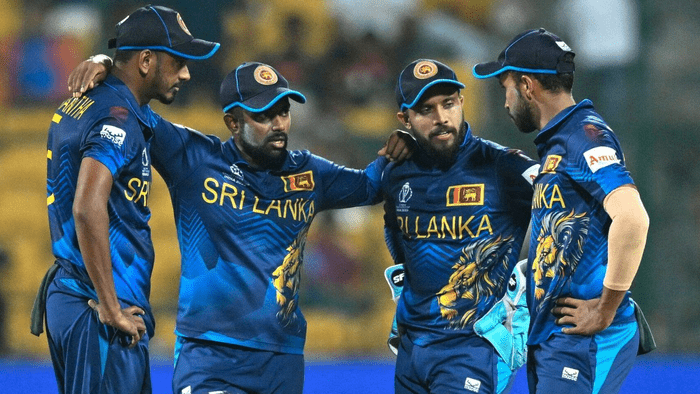Sri Lanka, a nation known for its rich cricket history and burgeoning talent across various sports, has increasingly turned to international coaches to elevate its teams to new heights. This strategic move has brought fresh perspectives, innovative training methods, and a wealth of experience from around the globe.
The influence of these international coaches is reshaping the landscape of Sri Lankan sports, fostering a blend of global expertise and local talent that promises to usher in a new era of athletic success.
The Evolution of International Coaching in Sri Lanka
The trend of hiring international coaches in Sri Lanka gained momentum in the early 2000s. Initially, the focus was predominantly on cricket, with renowned figures such as Dav Whatmore and Tom Moody taking the helm. Their success paved the way for other sports to follow suit.
Today, disciplines such as rugby, athletics, and even volleyball have embraced the expertise of foreign coaches.
In cricket, the influence of international coaches has been profound. Sri Lanka’s memorable 1996 World Cup victory under the guidance of Dav Whatmore marked the beginning of this trend. Moreover, an Australian brought a new level of professionalism and strategic thinking to the team.
His impact was immediate, transforming a talented but inconsistent side into world champions. This success story highlighted the potential benefits of international coaching, encouraging other sports to explore similar avenues.
Platforms like 1xBet Srilanka have also played a role in promoting and supporting these developments, recognizing the value of international expertise in boosting the performance of local teams.
Case Studies of Success
The impact of international coaches on Sri Lankan sports teams can be best understood through specific examples of notable figures who have left a lasting impression. Here are two such cases:
Chandika Hathurusingha (Cricket)
- Former Sri Lankan cricketer with international coaching experience, notably with Bangladesh.
- Returned to Sri Lanka as head coach, blending local knowledge with international expertise.
- Significant improvements under his guidance, especially in limited-overs cricket.
- Emphasized data analytics and strategic planning, modernizing the team’s approach to the game.
Matt Turner (Rugby)
- New Zealander appointed as head coach of Sri Lanka’s national rugby team.
- Introduced advanced training techniques and a disciplined approach to fitness and strategy.
- Played a crucial role in improving the team’s competitiveness in the Asian rugby scene.
- Praised by players for instilling confidence and tactical awareness, essential for elevating their performance.
These coaches have not only brought technical skills but also a fresh perspective, fostering growth and innovation within Sri Lankan sports teams.
Strategies Implemented by International Coaches
International coaches bring with them a treasure trove of strategies and methodologies honed in competitive environments. Chandika Hathurusingha, for instance, emphasized the importance of data analytics in cricket.
By leveraging statistical analysis, he was able to devise game plans tailored to exploit opponents’ weaknesses and maximize his team’s strengths. This scientific approach was relatively new to Sri Lankan cricket and has since become an integral part of the team’s preparation.
Matt Turner’s contribution to rugby extends beyond the physical aspect of the game. He introduced mental conditioning sessions, focusing on building resilience and composure under pressure.
This holistic approach has helped players perform better in high-stakes situations, showcasing the multifaceted benefits of international coaching.
Challenges and Cultural Integration
Despite the advantages, international coaches often face significant challenges, primarily stemming from cultural differences and language barriers.
Adapting to the local context while maintaining their coaching philosophy requires a delicate balance. For instance, Matt Turner had to navigate the nuances of Sri Lankan culture, understanding the players’ backgrounds and motivations to communicate effectively.
Chandika Hathurusingha, with his local roots, had a slightly different experience. His challenge was to integrate international best practices without disrupting the traditional values and playing style that Sri Lankan cricketers are known for.
Both coaches emphasized the importance of building trust and respect within the team, fostering an environment where players felt comfortable embracing new techniques and strategies.
Long-term Effects on Sri Lankan Sports
The long-term benefits of international coaching are already visible in Sri Lanka. There is a noticeable shift towards a more professional and analytical approach across various sports.
Youth development programs are incorporating elements of these advanced training methods, ensuring that the next generation of athletes is better prepared to compete on the international stage.
In cricket, the emphasis on data analytics and strategic planning has trickled down to domestic leagues and school-level cricket, creating a more competitive and informed pool of players.
Similarly, rugby’s improved performance has inspired a surge in popularity and participation at the grassroots level, promising a brighter future for the sport in Sri Lanka.
Some key long-term effects include:
- Professional and Analytical Approach: Sports teams are adopting more structured and data-driven training methodologies, with an enhanced focus on performance metrics and strategic planning.
- Youth Development Programs: Advanced coaching techniques are being integrated into youth sports, better preparing young athletes to compete internationally.
- Domestic Leagues and School-level Sports: There is an increased use of data analytics and strategic insights in local competitions, leading to the development of a more competitive and knowledgeable player base.
The influence of international coaches extends beyond the playing field. They serve as mentors and role models, inspiring local coaches to broaden their horizons and adopt global best practices.
This exchange of knowledge and expertise is vital for the continuous evolution of Sri Lankan sports, ensuring sustained growth and success in the years to come.

